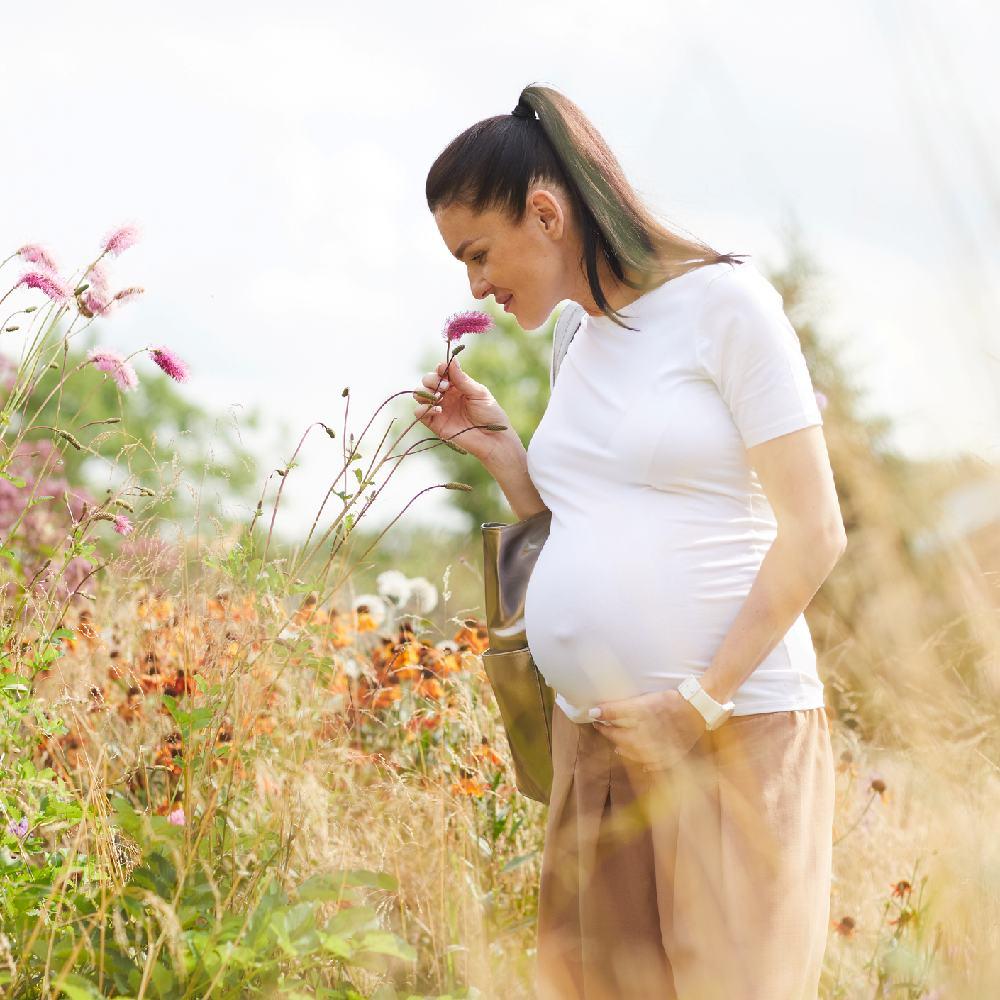
ongoing
HappyMums Understanding, predicting, and treating depression in pregnancy to improve mothers and offspring mental health outcomes

principal investigator / project leader
Ph.D. / Associate Professor
project value: PLN 39,995,701 (EUR 8,925,241)
SWPS University’s budget: PLN 1,102,967 (EUR 246,312.50)
funding source: European Commission
discipline: psychiatry, psychology
location: Sopot
duration: 2022 2023 2024 2025 2026
The "HappyMums" project is carried out by an international consortium consisting of 17 research institutions, including SWPS University. The goal of the project is to identify new therapeutic targets and develop innovative methods for treating depression in pregnant women.
Project funding: HORIZON-HLTH-2021-STAYHLTH-01-02: Towards a molecular and neurobiological understanding of mental health and mental illness for the benefit of citizens and patients; Project no. 101057390
Project objectives
"HappyMums" is designed to improve our understanding of the biological mechanisms underlying the development of depressive symptoms in pregnancy, and the efficacy of interventions. It will interrogate a large collection of cohorts with multiple biological, medical, clinical, socio-demographic and environmental and lifestyle data to identify the most robust risk factors triggering depressive symptoms, but also moderators of the risk.
By putting together unique human samples of placenta, chorionic villi and amniotic fluid, and animal models, "HappyMums" will improve the understanding of the neurobiological mechanisms affected by depressive symptoms in pregnancy that lead to alterations in the fetal environment, shaping offspring risk for developing negative mental outcomes.
As a team leader of the "HappyMums" project, I am excited about what we are about to experience. We believe that our research will significantly impact the mental health of pregnant women and their children.
Our research is based on the analysis of biological and clinical data, experiments on animal models, and the development of innovative diagnostic tools. Our goal is to understand the biological mechanisms that lead to the development of depressive symptoms in pregnant women and affect fetal development, also after delivery.
We are determined to use our results to identify new therapeutic targets and develop innovative methods for treating depression in pregnant women. We believe that our research will have a positive impact on improving the mental health of pregnant women and future generations.
Through our digital platform, we will be able to quickly and easily collect data and detect early signs of depression, which will enable faster diagnosis and treatment. We are confident that our research will have a long-term impact on the mental health of pregnant women and future generations, which is our main goal.

Jackowska, Marta
Principal Investigator
Specialization
health psychologist
First and last name
Marta Jackowska
Academic degree or title
Ph.D. / Associate Professor
Role in the Faculty
{"funkcja-na-wydziale0":{"Funkcja":"","\u0141\u0105cznik":"","Nazwa w mianowniku":"Faculty of Psychology in Sopot"}}
Role in the Department
{"funkcja-w-katedrze0":{"Funkcja":"","\u0141\u0105cznik":"","Nazwa w mianowniku":"Department of Clinical and Health Psychology"}}
Email
This email address is being protected from spambots. You need JavaScript enabled to view it.
Position
profesor uczelni
Role in the Institute
{"funkcja-w-instytucie0":{"Funkcja":"","\u0141\u0105cznik":"","Nazwa w mianowniku":"Institute of Psychology"}}
Institute
Institute of Psychology
Role in the Research Center
[]
Ph.D. / Associate Professor Marta Jackowskahealth psychologist
Methodology
The research methods used in "HappyMums" are multi-disciplinary and involve a combination of human and animal studies, as well as digital technologies. The study uses a large collection of cohorts with multiple biological, medical, clinical, socio-demographic, and environmental and lifestyle data to identify the most robust risk factors triggering depressive symptoms and moderators of the risk. The study will also involve the use of placenta, chorionic villi, and amniotic fluid samples from human subjects and animal models to improve the understanding of the neurobiological mechanisms affected by depressive symptoms in pregnancy that lead to alterations in the fetal environment, shaping offspring risk for developing negative mental outcomes.
Additionally, the study uses three complementary rodent models to achieve a proof of causality, and an innovative fish model to elucidate the mechanisms specific to the placenta by which adverse maternal conditions are transmitted to the offspring without the potentially confounding mitigating effects of compensatory postnatal maternal care. The study aims to identify new targets for the development of novel medications, for the repurposing of existing medications or for the development of non-pharmacological interventions.
Finally, the study involves the development of a digital platform where AI tools-based data can be collected, together with biological, clinical, medical, environmental and lifestyle data, through a mobile phone App that will be at the interface with clinicians via a dedicated dashboard. This will allow early screening of depressive symptoms, prompt diagnosis, personalized treatments, and the promotion of protective lifestyle attitudes. Overall, the study uses a range of multi-disciplinary research methods and digital technologies to improve the understanding of the mechanisms underlying the development of depressive symptoms in pregnancy and the efficacy of interventions.
SWPS University's Research Team

Braniecka, Anna
Specialization
clinical psychologist
First and last name
Anna Braniecka
Academic degree or title
Ph.D. / Assistant Professor
Email
This email address is being protected from spambots. You need JavaScript enabled to view it.
Role in the Faculty
{"funkcja-na-wydziale0":{"Funkcja":"","\u0141\u0105cznik":"","Nazwa w mianowniku":"Faculty of Psychology in Warsaw"}}
Role in the Department
{"funkcja-w-katedrze0":{"Funkcja":"","\u0141\u0105cznik":"","Nazwa w mianowniku":"Department of Clinical Psychology"}}
Role in the Institute
{"funkcja-w-instytucie0":{"Funkcja":"","\u0141\u0105cznik":"","Nazwa w mianowniku":"Institute of Psychology"}}
Institute
Institute of Psychology
Role in the Research Center
[]
Ph.D. / Assistant Professor Anna Branieckaclinical psychologist

Żukowska, Katarzyna
Role in the Department
null
Role in the Institute
null
Role in the Research Center
null
First and last name
Katarzyna Żukowska
Academic degree or title
M.A.
Email
This email address is being protected from spambots. You need JavaScript enabled to view it.
M.A. Katarzyna Żukowskapsycholog
Consortium members
- Universita Degli Studi di Milano, Italy - project leader
- Erasmus Universitair Medisch Centrum Rotterdam, the Netherlands
- Ospedale San Raffaele S.R.L., Italy
- Universitat de Barcelona, Spain
- Aarhus Universitet, Denmark
- Ab.Acus S.R.L., Italy
- Helsingin Yliopisto, Finland
- Charite - Universitaetsmedizin Berlin, Germany
- Societa Marce Italiana per la Salute Mentale Perinatale, Italy
- Hrvatsko Katolicko Sveuciliste, Croatia
- Universiteit Van Amsterdam, the Netherlands
- Wageningen University, the Netherlands
- Trustees Of Columbia University in The City of New York, USA
- SWPS University, Poland
- Universitat Zurich, Switzerland
- King's College London, UK
- Tommy's, UK
Visit Consortium's webpage
Application of results
The results of the "HappyMums" project would be extremely useful in several ways. First and foremost, the project aims to improve our understanding of the biological mechanisms underlying the development of depressive symptoms in pregnancy and the impact of these symptoms on fetal development. This knowledge could lead to the identification of new targets for the development of novel medications, repurposing of existing medications or the development of non-pharmacological interventions to improve the mental health of pregnant women.
"HappyMums" will also develop a digital platform where AI tools-based data can be collected, together with biological, clinical, medical, environmental and lifestyle data, through a mobile phone App that will be at the interface with clinicians via a dedicated dashboard. This will allow early screening of depressive symptoms, prompt diagnosis, personalized treatments, and the promotion of protective lifestyle attitudes.
The knowledge gained from this project could also have long-lasting implications for society as a whole. By understanding the risk factors and moderators of depressive symptoms during pregnancy and their impact on fetal development, we could reduce the incidence of negative mental health outcomes in children, which could ultimately lead to improved mental health outcomes across entire populations.
Overall, "HappyMums" will not only increase the knowledge in the field of mental disorders in pregnancy, but also improve the wellbeing of these women, providing unprecedented benefits also to the offspring and thus to society at large.